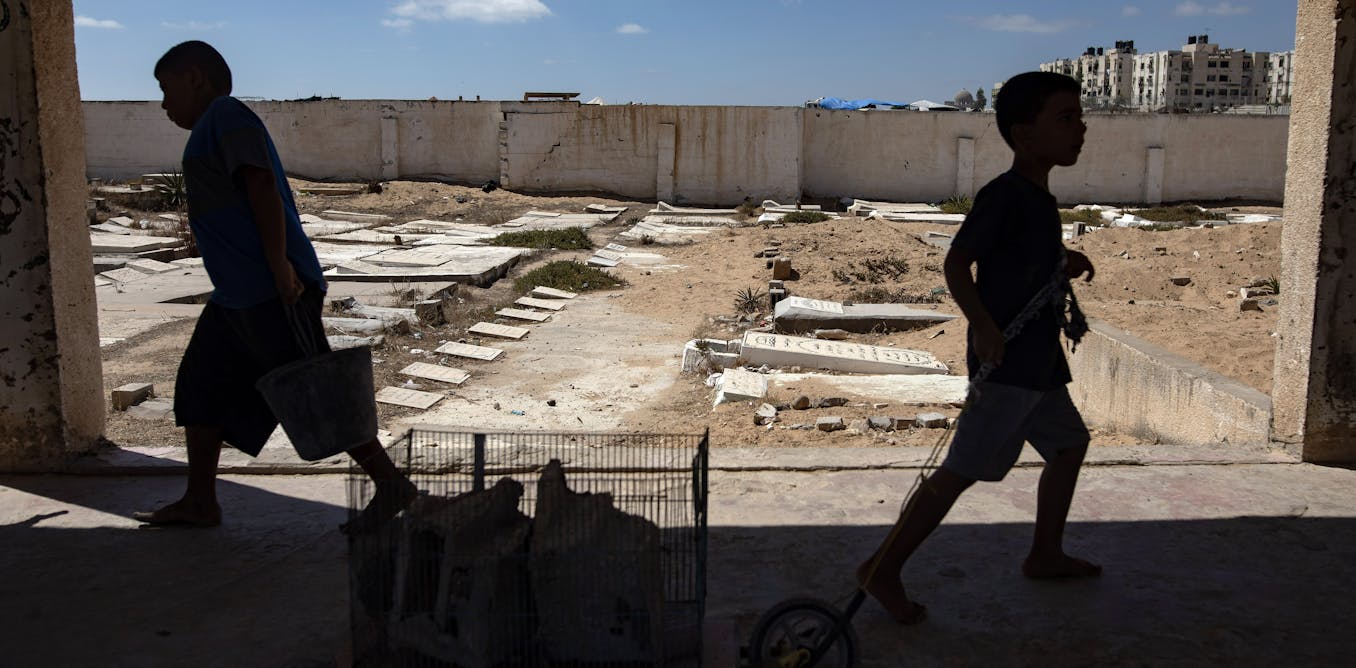Philippe Lazzarini, the commissioner general of the United Nations Relief and Works Agency for Palestine Refugees (Unrwa) says that Gaza is “becoming the graveyard of international humanitarian law”.
International humanitarian law (IHL), regulates the conduct of armed conflict, which is the legal expression for war. It covers everything from what is a lawful target, to the treatment of prisoners and injured people, and even to the testing of new weapons. The main rules of IHL can be found in the Geneva Conventions of 1948.
Lazzarini, though, has gone so far as to say that we “have made the Geneva convention[s] almost irrelevant. What is happening and being accepted today in Gaza is not something that can be isolated; it will become the new norm for all future conflicts”.
There can be no doubt that the situation in Gaza is dire. There is plausible evidence of the Israeli military carrying out war crimes there in its military operation triggered by, and commenced soon after, the devastating attack by Hamas against Israel on October 7 2023. The Hamas attack itself involved the commission of war crimes – and so does its taking of hostages and the subsequent treatment of them in captivity. But to say that all these atrocities render the law irrelevant is premature.
There are several reasons for this. One is that there is a difference between the existence of an important rule and its enforcement. Even where a rule is not being enforced, international law gives us a precise language to articulate exactly what is wrong with the situation. I recently wrote that what appears to have been a deliberate “double tap” attack against Nasser hospital in Khan Younis, northern Gaza, on August 25, violated IHL and can be seen as a war crime.
I have also written that other Israeli operations in Gaza amount to a crime against humanity, as they are part of a widespread or systematic attack against a civilian population. I, and others, have seriously contemplated the idea that a genocide is under way.
These legal expressions are important, and to accuse anyone of perpetrating the crimes that they embody has very serious political consequences. That is why, however implausibly, states like Israel and Russia have tried to maintain that they are totally compliant with international law.
Enforcement and impunity
Returning to the issue of enforcement, it is important to recognise that there are in fact several legal and political forums that provide an opportunity for it. These include the organs of the UN, including the International Court of Justice. There are also International Criminal Court arrest warrants for key leaders in respect of the events in both Gaza and Ukraine.
States that are signed up to the International Criminal Court are meant to be under an obligation to arrest people who are wanted by it. Yet, several opportunities to arrest Vladimir Putin have been spurned, like when he visited Mongolia recently. Likewise, Hungary failed to arrest the Israeli prime minister, Benjamin Netanyahu, when he visited earlier this year (Hungary has since denounced the court).
It’s debatable whether either of them will ever face trial. But the arrests warrants have already had political consequences. Putin was unable to attend the Brics summit in South Africa in 2023 because that country recognises the ICC. There were mixed reactions internationally to the news of the warrant against Netanyahu, with some affirming their support or at least their intention to comply with the warrants if necessary.
But history tells us that leaders who once seemed untouchable have eventually faced justice in one form or another.
Did the surviving leading Nazis ever expect to go on trial at a hastily convened military tribunal in Nuremberg? Did Augusto Pinochet expect that he would die under house arrest in his native Chile, facing trial for his actions during and since the military coup of 1973? Or that Saddam Hussein would face the death penalty and be hanged for his crimes in Iraq? Or that Libya’s Muammar Gaddafi would be ousted, abused, and then killed by a militia? Probably not.
A fair trial at the ICC would be preferable to most of those examples.
Justice for violations of international humanitarian law clearly needs to be seen to be done – if we don’t want Lazzarini’s catastrophic prediction to become a reality.

